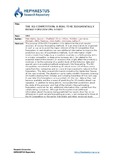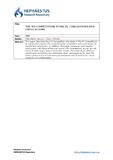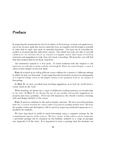Metaforecasting: Ways of improving forecasting accuracy and usefulness
Article
Forecasting has a long history. An understanding of such history coupled with the study of the empirical evidence can provide invaluable information for improving the accuracy and usefulness of predictions. Statistical forecasting methods suffer from their inability to predict temporary or permanent changes in established patterns and/or relationships, while people oscillate between ignoring and overreacting to such changes. Moreover, statistical methods do not fully utilize the historical information that data contains, while subjective forecasters are selective, biased, and inconsistent in the way they use such information. Also, whereas statistical methods are objective, people are influenced by personal and political considerations, wishful thinking, and what may be undue optimism or pessimism. Finally, both judgmental and statistical methods usually underestimate future uncertainty. This paper deals with these issues and their influence on forecasting. It discusses how forecasting accuracy can be improved by understanding and correcting the problems inherent in statistical methods and the past mistakes of judgmental forecasters. Furthermore, it looks at the complementarity of judgmental and statistical forecasting and the need to wed the two, and considers their relative advantages/drawbacks along with the benefits of accurate forecasts and the costs incurred through uncertainty and errors.
- Articles423




